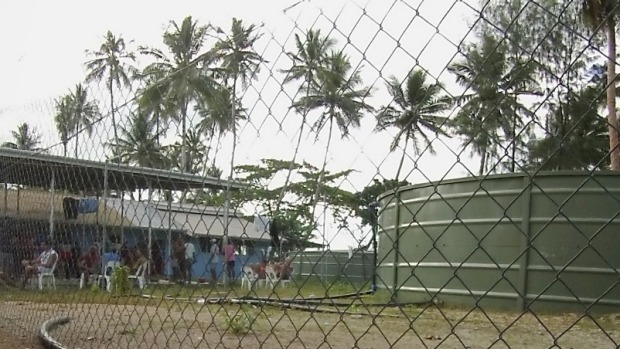
The damp, hot conditions on Manus Island, in Papua New Guinea, have led to serious skin conditions and increased risk of vector-borne diseases. Photo: Supplied
As a doctor, my work is defined by examining the evidence and recommending the solution. This applies whether I’m treating patients as a gastroenterologist or advocating for change as the president of the Royal Australasian College of Physicians.
The evidence from Australia’s immigration detention centres is in. They seriously and irrefutably harm the health of children and adults who have sought our protection.
As a doctor, I cannot think of any other scenario in which my ability to speak freely about serious harms being inflicted on my patients would be restricted.
Refugees and asylum seekers have complex needs as patients. Their experiences in their countries of origin, as well as in fleeing persecution, often result in complex disease, malnutrition, and developmental issues and severe mental health concerns.
Our immigration detention policy takes these needs and exacerbates them.
We know that detention, particularly when it exceeds six months, leads to serious trauma. We know the damp, hot conditions in Nauru and Manus Island, in Papua New Guinea, have led to serious skin conditions and increased risk of vector-borne diseases. The reports of poor sanitation and open water sources dramatically increase the risk of disease. We have seen one death in Manus Island from sepsis from a cut foot. The statistics on mental health conditions in detention are shocking in both adults and children.
And why do we have this evidence? It’s because my colleagues, dedicated physicians and paediatricians working in these centres to provide the health care the detainees so badly need, have been brave enough to speak out about the sometimes appalling conditions inside these centres.
Of course it would be better if doctors did not have to be there, that the centres would be closed, but while they remain open, it is my colleagues who deliver the medical support.
To date, they have spoken out in the face of confidentiality agreements which attempted to force their silence on return. Now, it seems, the government wants to jail them for speaking out.
The quiet passing into law late last month of the Australian Border Force Act is an attempt to further restrict the Australian public’s access to the truth about conditions in the immigration detention centres.
This law actively restricts the dissemination of any information gleaned by staff or contractors (including medical staff) in the centres; a law which threatens up to two years imprisonment for any doctor (any person) who dares to disclose the reality of the conditions in the centre. While there are caveats to the restriction, including where someone considers it necessary to save “the life or health of an individual”, it entirely forbids broader disclosure of information about conditions.
One of the most rewarding elements of my role as president of Royal College of Physicians is as the chief advocate for the college’s work and priorities. I have made it a distinct priority of my term to use this platform to advocate for the best possible patient care, and often to give a voice to the needs of those who otherwise wouldn’t be heard.
In that role, and as a doctor, I cannot think of any other scenario in which my ability to speak freely about serious harms being inflicted on my patients would be restricted. Indeed, I cannot conceive of any scenario in which such a restriction might be tolerated.
As doctors, the public relies on us to examine and reflect on what is best for our patients, and to speak up about any barriers to the best possible care.
I am appalled by this new law which will actively hinder us from learning and speaking the truth about harms inflicted on our patients. Urgent amendments must be passed to ensure appropriate protections for whistleblowers, and to allow doctors their full rights to advocate without threat of imprisonment.
The federal government needs to explain why it is intent on denying the Australian public the knowledge it deserves about the reality of the harms caused by this policy.
Nicholas Talley is the president of the Australasian College of Physicians.
